When dealing with a potentially career-threatening political scandal, there is a standard playbook: Issue a broad denial. Attack the accuser. Then declare the controversy over and tell everyone to move on.
That’s what Emil Bove — Donald Trump’s criminal defense lawyer-turned-senior Justice Department official — is going for as he tries to secure a lifetime appointment as a federal judge. The scandal? A scathing whistleblower disclosure by a former Justice Department lawyer that alleges disturbing and unethical conduct on the part of Bove and other senior DOJ lawyers, including multiple efforts to defy the courts in service of Trump’s agenda.
The disclosure, released one day before Bove’s Senate confirmation hearing last week, has further complicated a nomination that had already opened an uncomfortable fissure within the conservative legal movement and which faces an uncertain future in the GOP-controlled Senate.
Immediately after the allegations were unveiled, a defense took shape among the Trump administration and its Republican allies.
Deputy Attorney General Todd Blanche described the whistleblower, Erez Reuveni, as a “disgruntled former employee” and accused him of planting “a false hit piece the day before a confirmation hearing.” Senate Judiciary Chairman Chuck Grassley (R-Iowa), who has long positioned himself as a champion of government whistleblowers, endorsed Blanche’s defense at Bove’s hearing and said that the “timing alone indicates that this was a coordinated political strike.” In his own testimony, Bove cast the accuser as a member of an “unelected bureaucracy” trying to subvert the will of the president.
None of this is accurate, according to lawyers for Reuveni and five people who have worked with him in varying capacities going back nearly 20 years.
Together, those people paint a picture of an experienced, effective and non-partisan lawyer who zealously advocated on behalf of administrations of both parties, including Trump in his first term. They provide plenty of reason to take Reuveni’s account extremely seriously.
One of those people is Jon O. Newman, a senior judge on the U.S. Court of Appeals for the Second Circuit and among the most highly regarded appellate judges in the country, who described Reuveni to me as “a very intelligent, conscientious, hard-working lawyer.” Newman is one of two federal judges for whom Reuveni clerked out of law school, and he was first appointed as a district judge more than 50 years ago by President Richard Nixon.
According to Newman, Reuveni was not a bomb thrower. “He didn’t shy away from giving me an opinion if I asked for it, but he was not one to exaggerate his opinions or take extravagant positions,” Newman said. “He was top flight” and “never over the top.”
A spokesperson for the Justice Department declined to comment on Reuveni’s allegations.
Whether Senate Republicans — including Judiciary Committee members like the newly liberated Sen. Thom Tillis (R-N.C.) — come to believe Reuveni’s version of events could determine whether Bove makes it on to a federal appeals court, and perhaps one day, the Supreme Court.
Reuveni’s allegations emerged on the eve of Bove’s confirmation hearing in a story from The New York Times, but there is no evidence that they were, as Grassley quickly concluded, “a coordinated political strike.”
“We would have been happy to get this out in April,” Dana Gold, one of the attorneys at the Government Accountability Project who is representing Reuveni, said in an interview. “It had nothing to do with the nomination.”
Gold told me that she and her colleagues had been “working for over two months, almost full-time” on Reuveni’s disclosure in order to gather all the facts and supporting documentation and to ensure the accuracy of the final account. They also worked carefully to try to ensure that Reuveni’s disclosure fell within the appropriate legal and ethical bounds under whistleblower disclosure laws.
Meanwhile, Reuveni’s former colleagues — a group that includes some of the most experienced civil litigators who have worked in the Justice Department — are sticking by him as he faces attacks from the right.
According to David McConnell, who worked as a senior career attorney in the Justice Department’s Office of Immigration Litigation for 34 years and began supervising Reuveni last fall before leaving the department earlier this year, Reuveni was distinctly non-partisan. In fact, Reuveni, who worked at the Justice Department for nearly 15 years, played an integral role in defending Trump’s immigration policies during the first administration.
“He was very aggressive, very vigorous in defending the policies of the administration under all administrations,” McConnell told me. “He did a lot of cases about border security, defending regulations and policy changes that the Trump administration was trying to achieve.”
To Jennifer Ricketts, Reuveni “stood out as someone who was a very aggressive advocate, who was very energetic and very dedicated, just worked his butt off trying to make the best arguments possible, often under very difficult circumstances.”
Ricketts worked with Reuveni in her capacity as a branch director of the Federal Programs Branch in the Civil Division. She retired last year after nearly 35 years at the Justice Department and told me that she has no reason to question Reuveni’s account.
“He understood well what his role was, which is not to make policy. It is to defend [the government] wherever there is a reasonable legal argument to be made and facts that support the decisions made by the executive branch,” Ricketts said. “To me, he was always a straight shooter.”
She was taken aback when Reuveni was placed on leave in April and later fired — apparently because he accurately told a federal judge that Kilmar Abrego Garcia had been erroneously deported to El Salvador.
“It remains just stunning to me that they could question how Erez comported himself here. I was honestly proud in reading his recitation — in reading how he had handled himself,” Rickets said. She added that she “was deeply disappointed that others didn’t also speak up.”
Two other former Department of Justice colleagues, who were granted anonymity to avoid potential retaliation from the Trump administration, echoed the views of Newman, McConnell and Ricketts.
“He is one of the most dedicated DOJ attorneys I’ve ever worked with,” one of them told me. “He is a very, very smart attorney who is very accomplished and good at working cases that are complex and high-profile,” they continued, adding, “I don’t think any personal beliefs he may or may not have held would influence his work in any way.”
“Everything they’re saying about him is ridiculous,” another former colleague told me.
“He would do everything he could to represent the clients — but that includes telling the clients when they are doing something that is potentially illegal, potentially unconstitutional, that they need to rectify mistakes,” this person said. “That’s all part of being a lawyer, especially being a lawyer for DOJ.”
Like others I spoke with, this former colleague believes Reuveni: “I believe his account 100 percent. He wouldn’t submit anything to a court or to Congress or a disclosure like this without making sure it was 100 percent accurate.”
Reuveni has made several serious accusations against Bove, who tried to swat them down at last week’s hearing but largely didn’t actually address their substance, and it’s worth going through them.
Bove repeatedly said, for instance, that he had not ordered Justice Department lawyers to defy court orders in the administration’s deportation litigation, but that is not what Reuveni alleged.
In fact, Reuveni alleges that Bove told a group of Justice Department lawyers in mid-March, shortly before Trump publicly invoked the Alien Enemies Act as part of his mass deportation effort, that “one or more planes” would soon be leaving with individuals who were allegedly subject to the AEA. Reuveni alleges that Bove “stressed to all in attendance that the planes needed to take off no matter what.”
According to Reuveni, “Bove then made a remark concerning the possibility that a court order would enjoin those removals before they could be effectuated. Bove stated that DOJ would need to consider telling the courts ‘fuck you’ and ignore any such court order.”
This was not an instruction to ignore a particular court order, since there were no pending cases yet, so Bove’s comment at the hearing was not technically inaccurate. But in Reuveni’s telling, it was a tone-setting broadside — and it worked. In the weeks to come, political appointees in the Justice Department sought to defy court orders in three separate cases “through lack of candor, deliberate delay, and disinformation,” according to Reuveni. His account is extremely detailed — citing names, dates and specific court proceedings.
If it needs to be said, it is wildly improper for a lawyer to deliberately deceive or mislead a judge. Every lawyer has a duty of candor to the courts, and judges generally expect Justice Department lawyers to interpret that duty broadly in light of their positions as public officials, their oaths to uphold the Constitution and their overriding obligation to do justice — not just win cases however they can.
Blanche has said that he “was at the meeting described in the article and at no time did anyone suggest a court order should not be followed,” but Reuveni’s account appears to be at odds with Blanche’s claim. Reuveni names four other senior Justice Department lawyers in attendance, but they do not include Blanche — a conspicuous omission that suggests that he was not present. After all, if Blanche had been at the meeting, he would have been the most senior official in attendance and, as Bove’s supervisor, directly implicated by Bove’s alleged misconduct. Yet Reuveni did not mention him being there.
Reuveni also alleges that Bove told officials in the Department of Homeland Security that they could violate an oral court order — one that directed the return of flights to El Salvador as part of the AEA deportations — because the order had not yet been issued in writing. When I recently asked a retired, longtime federal judge what she made of the idea, she responded: “That it’s creative? That’s all I can make of it, because I’ve never heard it before.”
The presiding judge has since concluded that there is probable cause to hold Trump administration officials in criminal contempt as a result of that decision.
As for that meeting in March, Bove appeared unable to deny Reuveni’s account when pressed. Sen. Adam Schiff (D-Calif.) zeroed in on that event, but when asked about the exchange in question, Bove stated, “I don’t recall.”
The meeting in question was just three months ago.
Legacies will be made and unmade in the second Trump administration.
Setting aside the fate of Bove’s nomination, several people in the whistleblower advocacy community told me that they found Grassley’s handling of Reuveni’s account last week “disappointing, if not surprising,” as one of them put it. (These individuals were granted anonymity to avoid antagonizing a powerful lawmaker and sometime-ally.)
Grassley has long advocated for the rights of whistleblowers and embraced their accounts, at least in some circumstances. But in recent years, he has also been a loyal partisan Republican on these issues, at least when they directly concern Trump.
Grassley welcomed the accounts of two whistleblowers from the Internal Revenue Service who claimed misconduct in connection with the Justice Department’s investigation of Hunter Biden. After Trump took office this year, Grassley secured promotions for them.
When a whistleblower reported on Trump’s effort in 2019 to pressure Ukrainian President Volodymyr Zelenskyy to investigate Joe Biden, Grassley offered some initial but tentative support. He said that no one “should be making judgments or pronouncements without hearing from the whistleblower first and carefully following up on the facts” and that disclosures that are “based on second-hand information should not be rejected out of hand, but they do require additional leg work to get at the facts and evaluate the claim’s credibility.” (In the end, Grassley voted against Trump’s impeachment.)
When Reuveni’s disclosure became public last week, Grassley appeared to reject it out of hand. He described it at Bove’s hearing as an “initial unconfirmed whistleblower report.”
Of course, by definition, every “initial” whistleblower report is “unconfirmed.” That’s what an investigation is for. It might entail, for instance, “hearing from the whistleblower” and conducting “additional leg work to get at the facts and evaluate the claim’s credibility.”
Grassley now appears to have no interest in doing that work before elevating Bove to a position as a federal appeals court judge — a position that some conservative lawyers believe could prove to be a stepping stone to the Supreme Court. Asked whether Grassley intended to investigate Reuveni’s disclosure, a spokesperson pointed to his statement at the hearing in which he expressed skepticism of the whistleblower.
It is a gift to both Trump and Bove, whose nomination was already contentious for other reasons.
Before this episode, Bove faced allegations that he lied to a federal judge in connection with the dismissal of the prosecution of New York City Mayor Eric Adams; he had drawn highly unusual and sharp criticism from prominent defense lawyers in New York who said that he “lied,” was “a nightmare” as a prosecutor and was “completely reckless and out of control”; he had attracted criticism from former colleagues who described him as engaging in “threatening, pound-the-table antics” that were “wild as a supervisor and as a line assistant”; and he supervised a trial team that was taken to task by a judge for trying to bury evidence favorable to the defendant.
Bove no doubt has his own version of these events and had his opportunity to address them last week, but it would not be hard to truly investigate any of these allegations if Grassley had the appetite. Nor would it be particularly difficult to pursue Reuveni’s claims.
Grassley could call Reuveni himself to testify, along with the four other political appointees who Reuveni has placed at the meeting in mid-March and the other unnamed career attorneys in attendance who are referenced by Reuveni. Grassley could also request that Reuveni and the Justice Department provide any notes and electronic records relevant to the meeting — including calendars that might shed light on who was actually in attendance.
There is no apparent need to move quickly to confirm Bove, except that more time may yield more uncomfortable disclosures.
Senate Republicans have already waved through plenty of highly controversial nominees for Trump — including those facing questions over both their qualifications and extremely serious allegations of misconduct — and they may eventually do the same with Bove.
But it’s also possible a few key GOP senators balk as questions grow about Bove’s conduct and his fitness to serve as a judge. The recent retirement announcement from Tillis, a relatively independent-minded Republican who sits on the Judiciary Committee and tanked the nomination of Ed Martin to serve as U.S. Attorney in Washington, D.C., is a potentially bad omen for Bove.
Whatever the result, Reuveni’s former colleagues are standing behind him. “This was incredibly brave,” one of them told me. “I feel proud of him.”
.png)



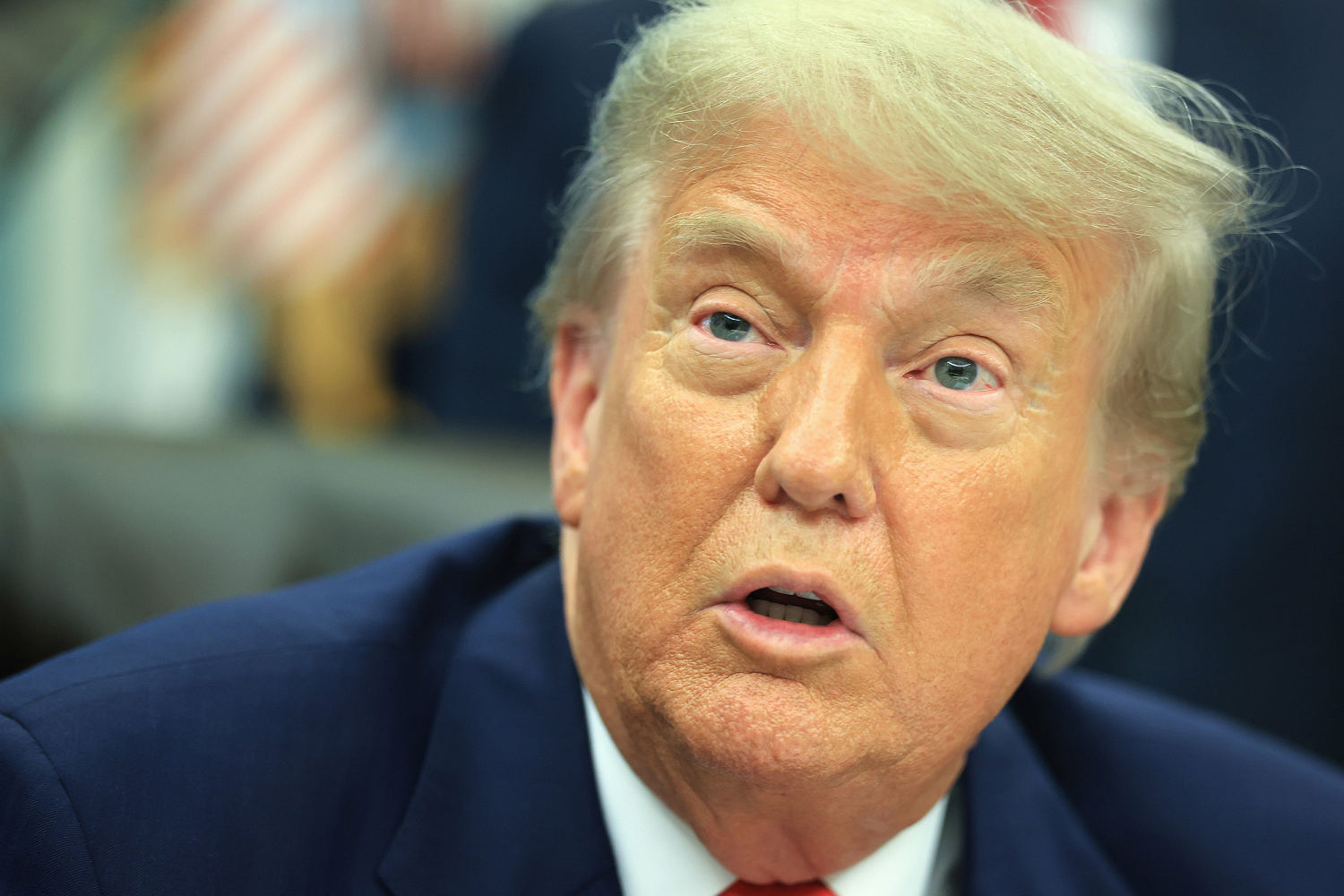
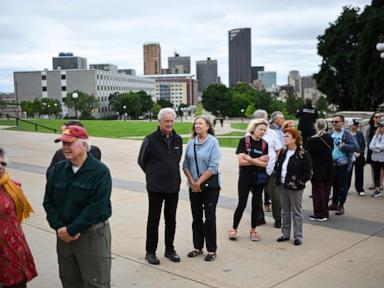


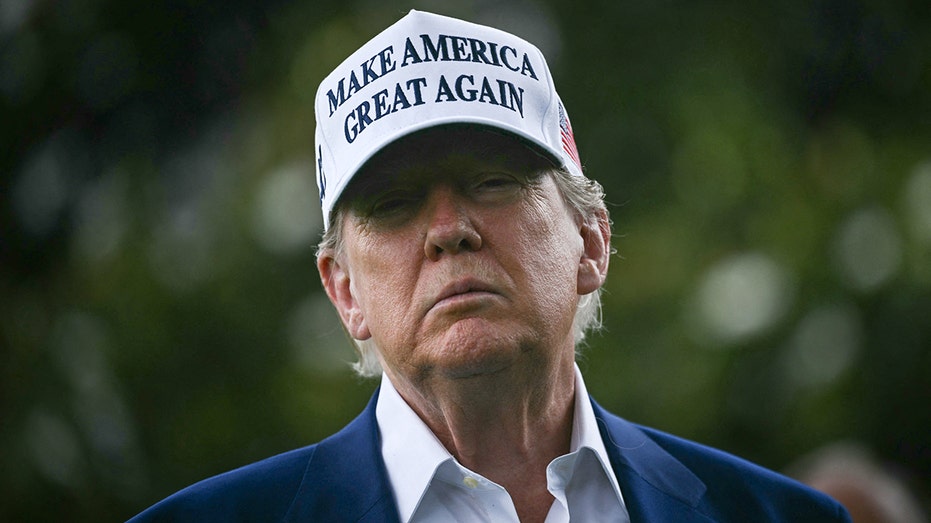
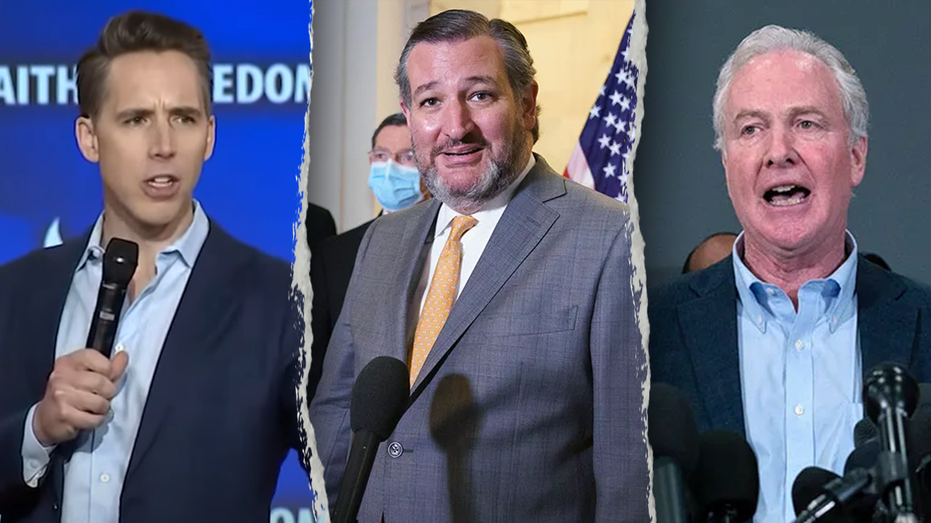
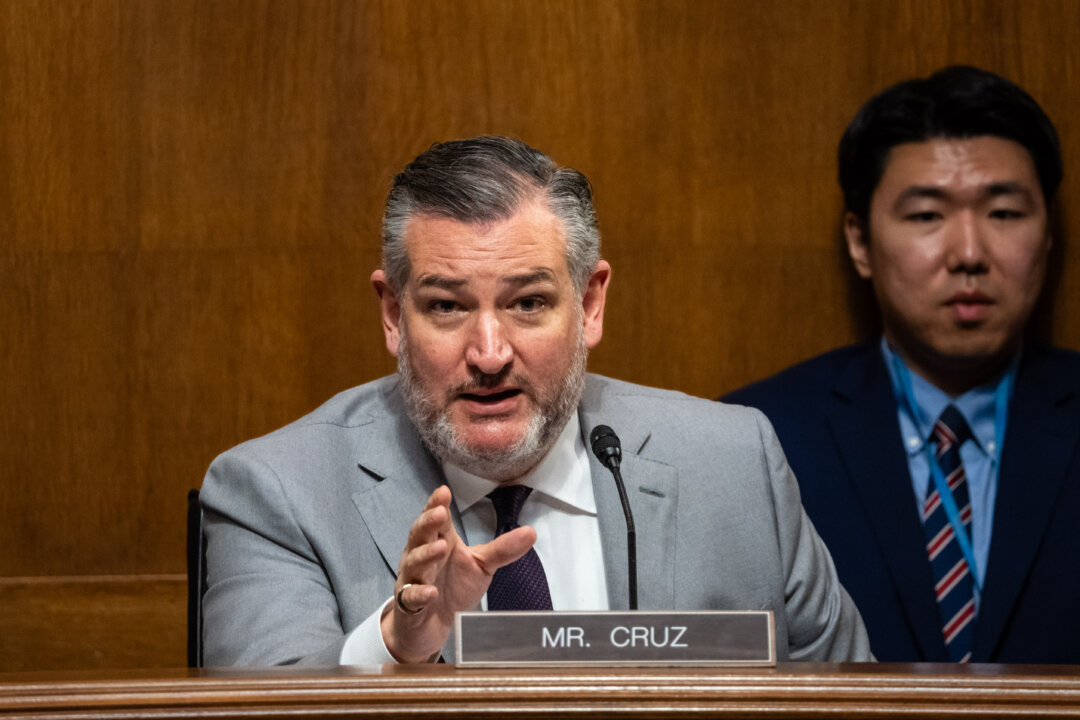


 English (US)
English (US)